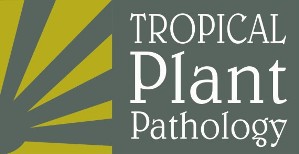A virus survey conducted in the northwest region of Paraná, the main cassava-producing region of that state, showed Cassava common mosaic virus (CsCMV) to be widespread, infecting more than 90% of plants from all cassava cultivars. A CsCMV isolate was purified and used to raise a high-titer (1/1.000) polyclonal antiserum for indexing plants produced from meristem-tip culture, using PTA-ELISA. From an initial production of 110 plants of cultivar Olho Junto, 31 remained infected as indicated by PTA-ELISA. To improve the sensitivity of virus detection, an immunocapture-RT-PCR (IC-RT-PCR) protocol was established. Virus-specific IgG, purified and combined with a primer set for the genus Potexvirus, could readily detect CsCMV in cassava crude leaf extracts. IC-RT-PCR products of 750 bp were amplified from six out of 35 plants previously tested as virus-negative by PTA-ELISA. Sequence analysis of cloned IC-RT-PCR products confirmed they were part of the CsCMV replicase gene, indicating that the virus was still present after thermotherapy and meristem-tip culture. PTA-ELISA enabled initial screening of virus-positive cassava, reducing the number of plants to be further analyzed by IC-RT-PCR. Though CsCMV has been considered of minor importance, its widespread nature, as noticed in Paraná, indicates the need for adoption of effective control measures.
Potexvirus; Euphorbiaceae; IC-RT-PCR; indexing; PTA-ELISA



